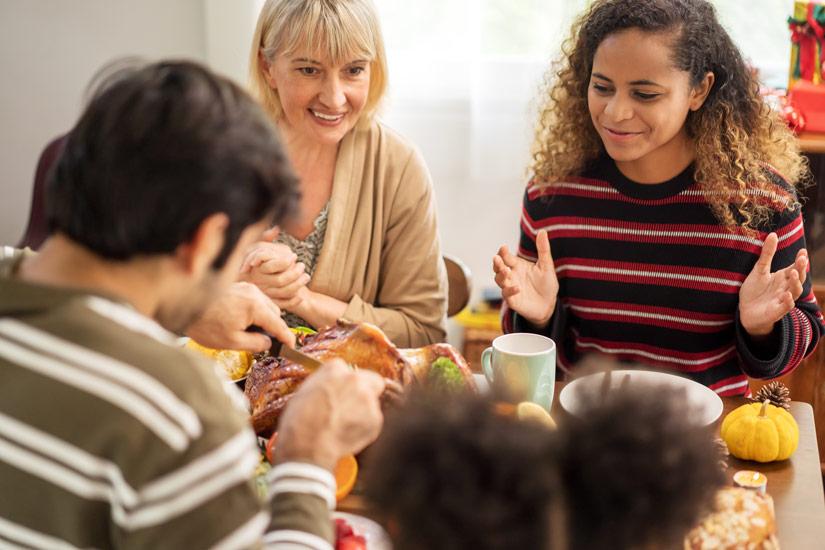The holiday is called Thanksgiving.
Seems straightforward enough. It is a day for giving thanks for all of the blessings in our lives.
But for many people, the holiday hardly brings up feelings of thankfulness. Our gratitude can get blocked out by the stress of family gatherings, a huge meal to prepare and clean up, and a refrigerator full of leftovers that are not going to eat themselves. And if you allow yourself to be pulled into the shopping frenzy that has come to define the holiday weekend, well, the stress meter just keeps climbing. Black Friday, indeed!
If you or a loved one is in recovery, all of the holiday stress has an additional downside: it may make it significantly more difficult to avoid a relapse.
Make a Plan You Will Be Thankful For
What can you do to minimize the risk of relapse around one of the most stressful holidays of the year? Here are a few ideas for the big day:
- If the gathering is at your place, don’t serve alcohol. While people in recovery are well aware that they should avoid situations that will involve temptation or social pressure, it might seem necessary to make an exception for a major holiday. After all, you don’t want to deprive your guests of a little wine with dinner or a beer while they watch football. But if you are the host, the best thing to do is to offer a different selection of non-alcoholic beverages. You should also remind your guests that Thanksgiving isn’t a “bring your own” event—even if they dress it up as a host or hostess gift.
- If you are a guest in someone else’s home, you will want to decide in advance how you will avoid or turn down alcohol. This is especially important if you are attending a gathering that includes people who don’t know you are in recovery. Having a polite line at the ready—“I appreciate the offer, but I think I’ll just have water” or “Oh, none for me, thanks. But I’d take a soda if you have it.”—can help prevent an awkward moment. In a pinch, you should feel free to break the “bring your own” rule above; bringing your own non-alcoholic option is not a breach of etiquette!
- You should know in advance how you will get home. Odds are that your gathering with family and friends will go just fine. But if there is too much alcohol around or if your uncle just won’t stop talking about politics or your cousin’s baby won’t stop crying, you may find that you need some space. If you have driven yourself to the get-together, you are all set. But if you have carpooled and your driver isn’t ready to go (or has had too much to drink), be ready to call for a ride.
- The day you carve the turkey might also be the perfect day to carve out some new traditions. If alcohol has always been part of your Thanksgiving festivities in the past, shake things up. The options are endless – board or video games, baking together, watching a holiday movie. The important thing is that you come up with activities that you don’t immediately and habitually associate with alcohol.
Don’t Let Your Good Habits Take a Holiday
In addition to making a Thanksgiving plan in advance, don’t forego the healthy routines that have supported your sobriety in the off-season.
If you participate in a 12-Step program, for example, stick with it during the holidays—even when (or especially when) it might feel like you are too overwhelmed to make it to a meeting. The consistent support that can be found in your 12-Step meeting or in conversation with your sponsor is always important, and you will be thankful you didn’t skip meetings around Thanksgiving.
Similarly, it is important to stay on your sleep schedule, to continue to eat healthily, and to get regular exercise. It can be easy to let these things slide as you get busy preparing for Thanksgiving (and for the other holidays coming up right behind it!). But sleep, nutrition, and exercise are all sources of significant support for your sobriety.
We are Thankful for the Opportunity to Help
We know it is ironic that a holiday built around giving thanks often gives people stress. At this time of year, we are grateful, as always, for the opportunity to provide topflight care and resources for people pursuing long-term sobriety. All of us at Bel Aire Recovery Center in Kansas are thankful for your trust in us as we serve you or your loved one.




